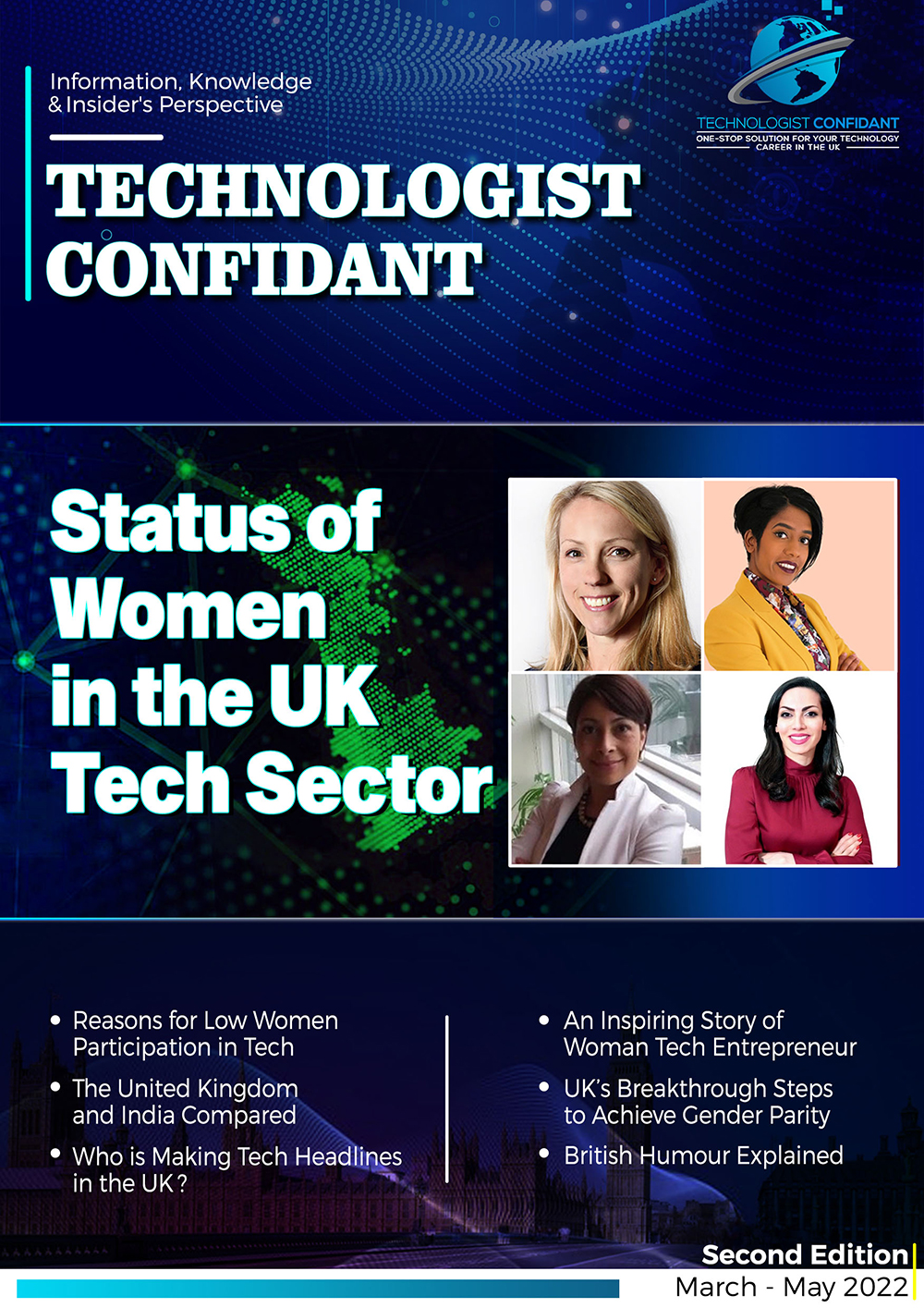It is evident that organisational innovation requires a diverse team with members who can push one another and contribute to new ideas. Not encouraging female employees' participation in the workplace appears to be a risk most companies should avoid. At a crucial time like this, the underrepresentation of women in technology is a major obstruct between the technological advancements and overall growth of the country.
Technologists Confidant's purpose is to be a trusted and open source in inspiring and supporting tech professionals in the UK. We leverage insider's perspective to link people and shine a spotlight on future opportunities in the United Kingdom technology domain. With this thought in mind, we have connected with Oriyomi Fowler, Head of Information Security and Network Operations at Dangote Industries Limited, to shed some light on the burning topic of the tech industry from a male perspective. And in this detailed interview, he draws a comparative picture between tech sectors in developing and developed countries.
TC: What is the first thing coming to your mind when you think about "women in tech"?
Oriyomi: A selective few women with determination to make an impact in the world, they've pushed against all gender stereotypes and enjoy solving people's problems.
TC: What do you think of Global gender disparity in the tech sector?
Oriyomi: I think it's a gap that'll be difficult to measure, but to an extent, the gap can be improved by making tech roles convenient for female counterparts. Such as implementing sustainable work-life balance for employees; this way, women are not forced to drop out to more management inclined positions when the stakes get higher.
TC: Why do you think there are still so few females in the technology sector?
Oriyomi: Environment & Culture are the significant reasons - There are still few females in the tech industry. I think this gap would be difficult to fill because it's pretty easy to mentor and advertise the benefits and impressive works of the tech industry, thereby luring a lot of high school students and university graduates to aspire to be in the field. Most of them get into the area; that's why there are more females in entry-level roles than in senior positions. But as they climb up the career ladder and progress in their private lives, only a few women can still hold on to technical roles because the industry is ever-growing and requires constant relearning. Some females may find it hard to have a work-life balance when you tend to see them relaxing in a particular position while their male counterparts forge ahead.
TC: In your opinion, how different/similar is it for women to work in the tech sector in developing countries like India, Nigeria and developed countries like the UK?
Oriyomi: For a country like India & Nigeria, where the economy swings like a pendulum, employers over utilise their employees. This makes it quite difficult for women who need a balance from work to grow in other areas of their lives.
You'll tend to find tech experts in the Indian & Nigerian tech industry moving around with their laptops because they can be called upon at any time. The employment states it's an 8-5 job, but you end up working extra hours, and to normalise this defect, some companies go-ahead to pay for your spare time, which in developed countries work schedules are adhered to, and you're paid per hour. If the job requires attention 24/7, it's made a shift role.
So now, considering a woman who wants to advance in the tech industry in India and balance her family life, this approach makes it difficult. This is why you tend to see higher roles are male-dominated because they can quickly jump on any work at almost anytime. Still, a female counterpart needs to consider other factors before making a move.
TC: According to you, how the UK tech landscape has changed and adapted for women in the wake of the COVID outbreak and Brexit?
Oriyomi: COVID outbreak has shown most organisations that work can be achieved 100% from home. This opportunity has made tech roles desirable to women, and they can work effectively from home and still have the much-needed family time. Moreover, Brexit has ensured that there are many positions available with fewer candidates available, which has opened up opportunities for men and women.
TC: What advice would you give to young women entering the tech field in the UK?
Oriyomi: The current stats aren’t particularly optimistic. Only one in six tech specialists in the UK are women, only one in ten are IT leaders, and worse still. Despite significant growth in the number of women working in technology and IT roles, female representation in the technology sector has stalled over the last ten years. I will advise women coming into the tech space to remain resilient and not mind the gender disparity.
TC: What's your suggestion for technologists in a career break or struggling to reenter /grow in the UK sector?
Oriyomi: There is always an opportunity for the right skills, seek knowledge, and opportunities will present themselves.
More about Oriyomi Fowler:
Oriyomi Fowler was the Head of Information Security & Network Operations at Dangote Group, Nigeria, Africa's largest conglomerate with over $15 billion in assets. He has been recognised as an exceptional tech talent in the cybersecurity field by the UK Govt. He is a Global Talent Visa holder and currently working in the UK’s Cybersecurity domain.
Connect with Oriyomi at LinkedIn






